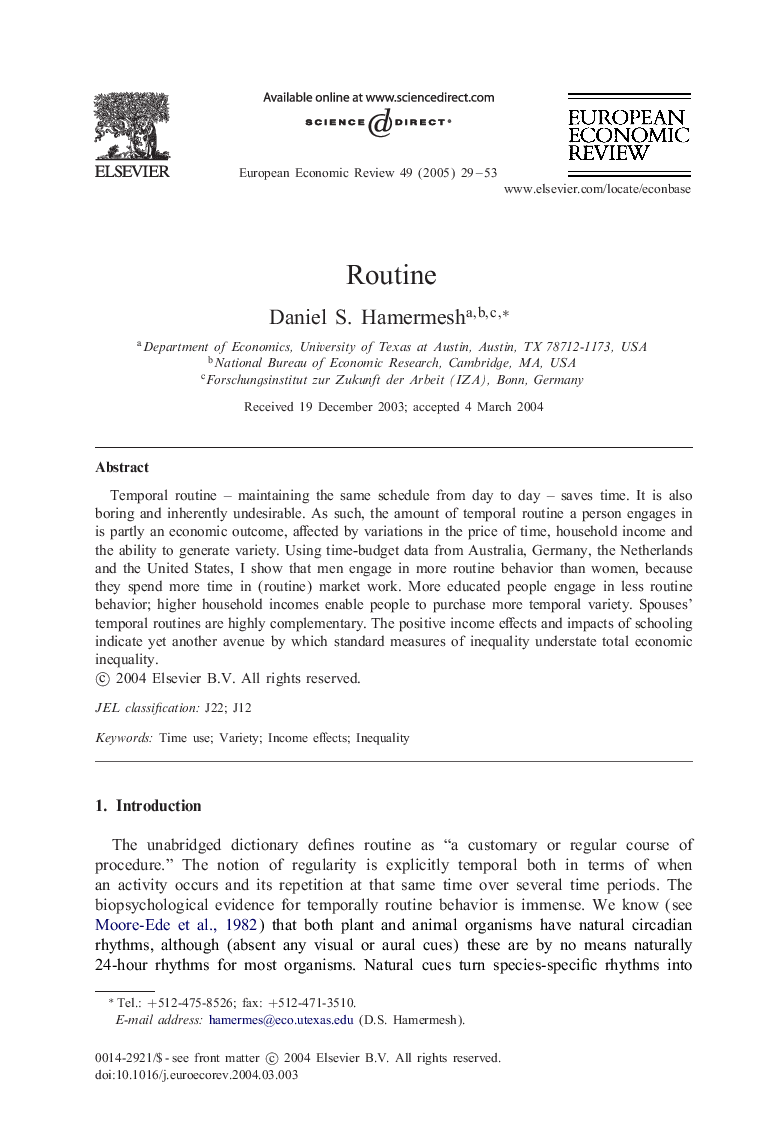| Article ID | Journal | Published Year | Pages | File Type |
|---|---|---|---|---|
| 9550915 | European Economic Review | 2005 | 25 Pages |
Abstract
Temporal routine - maintaining the same schedule from day to day - saves time. It is also boring and inherently undesirable. As such, the amount of temporal routine a person engages in is partly an economic outcome, affected by variations in the price of time, household income and the ability to generate variety. Using time-budget data from Australia, Germany, the Netherlands and the United States, I show that men engage in more routine behavior than women, because they spend more time in (routine) market work. More educated people engage in less routine behavior; higher household incomes enable people to purchase more temporal variety. Spouses' temporal routines are highly complementary. The positive income effects and impacts of schooling indicate yet another avenue by which standard measures of inequality understate total economic inequality.
Related Topics
Social Sciences and Humanities
Economics, Econometrics and Finance
Economics and Econometrics
Authors
Daniel S. Hamermesh,
